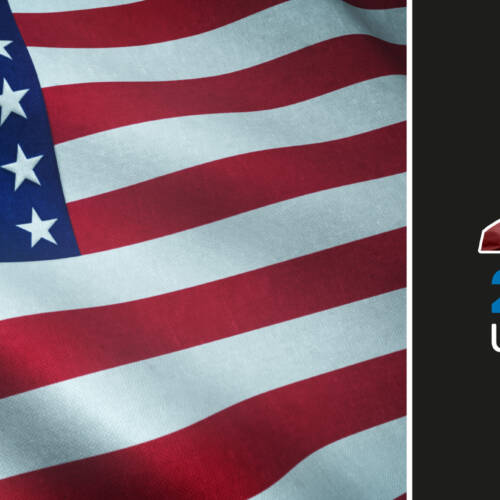
ICYMI John Bolton Deflects and Squirms during Mehdi Hasan Grilling
19 Oct 2020With elections in the US drawing closer and turning ever more volatile, there is no shortage of hot-takes on who is better suited to lead the country at a time of crisis.
In case you missed it: John Bolton, Trump’s former National Security Adviser who resigned from Trump administration and penned a scathing book about what went on behind the scenes, was recently interviewed by British (now American!) veteran journalist, Mehdi Hasan.
True to form, Hasan asked hard-hitting questions about Bolton’s politics, interests and beliefs, leading to heated exchanges between the two.
Will Trump Accept the Election Results?
Hasan’s first question was about the upcoming election and widespread concerns that violence could erupt if Trump does not accept the results in the event of a loss. Appealing to Bolton’s personal experience with Donald Trump, Hasan asked if he expects Trump to accept the results in the event of a loss.
Reflecting many of our own fears, Bolton expressed concern that the President “won’t leave graciously.”
The former National Security Adviser went on to explain that there are legitimate, legal mechanisms to contest an election, especially if the results are close. Former Democratic candidate Al Gore’s contesting of the results in 2000.
However, he feared that the usual methods of disputing the results would not be followed.
On a related point, Hasan quizzed why Bolton would not vote for Biden despite opposing Trump. In a manner of deflection and avoidance that would set the tone for the rest of the interview, Bolton merely said that his state, Maryland, is a Democratic safe state and his voting decision would not matter.
The Room Where It Happened: Is Bolton Credible?
Hasan’s next questions were about The Room Where It Happened: A White House Memoir covering Bolton’s experiences while he was in the White House.
While Hasan acknowledged that Trump’s denouncement of the book and his claims of Bolton’s untrustworthiness are not credible, he mentioned how more credible voices had also denounced Bolton and asked why his claims should be accepted.
Bolton’s response was that he tried his best to cover what he witnessed and he welcomes challenges. He added that two of the people who denounced him, Secretary of State Mike Pompeo and former President George W. Bush, both had personal and professional interests in denouncing him, with Bolton claiming that Pompeo has an eye on becoming President “desperately”.
“You Don’t Know What You’re Talking About!”
Perhaps the most heated moments of the interview came when Hasan turned the attention away from the former National Security Adviser’s enemies, to his own record.
Hasan especially focused on Bolton’s record as an advocate for the Iraq War and asked if he regretted his part in supporting it, especially as he was part of the Bush Administration and, unlike many other US politicians, did not retract his support.
Despite Hasan repeatedly focusing on the aftermath of the war and the effect the war had on the Iraqi people, Bolton seemed intent on divorcing the four weeks of the official war that ended with the removal of Saddam Hussein. Bolton described this period as a resounding success.
Even as Hasan tried to bring the focus to the aftermath of the immediate war, Bolton seemed intent on deflecting the issue and his contribution to it, suggesting that the American invasion had little to do with the bloody conflict that resulted from the American invasion.
At most, he put the blame on Iran for arming militias and on the Bush Administration for creating the Coalition Provisional Authority instead of giving governance directly back to Iraqis.
“Where the United States made a mistake – and I’ve said this repeatedly over the years – was in the period following the overthrow of Saddam Hussein. I do not think we should have set up a coalition provisional authority. I think we should have kept troops there for a lot of reasons, but I think we should have turned responsibility for the government over to Iraqis as soon as possible,” Bolton said.
Through it all, Bolton was unrepentant about the thousands that died as a result of the ill-advised American invasion that was based on falsities.
That Iran was brought up by the National Security Adviser led to Hasan’s next question on the Iran nuclear deal. Hasan quizzed the wisdom of US leaving the deal, suggesting that the IAEA had confirmed that Iran has been producing more enriched uranium since then.
In typical fashion he displayed in the previous question, Bolton went to deflect, claiming that IAEA is not a spy agency and doesn’t have the full picture. However, he did not provide any counter-evidence, just denounced that the deal was “very bad”.
Similar deflections occurred when Hasan asked whether Bolton’s hostility to Iran is out of genuine geopolitical concerns, or private interests, bringing up his association with MEK that was listed as a terrorist group when Bolton appeared in one of their events in 2010.
Bolton’s response was that the group was no longer classed as a terrorist group, having been removed in 2012.
With acrimony between Hasan and Bolton growing, there was space for only one last question and that was whether Bolton saw a contradiction with being a hawkish politician despite explicitly not wanting to partake in the Vietnam War.
Hasan even pulled a quote from Bolton which said that he had no desire to die in “southeast Asian rice paddies”. Responding to Hasan with hostility, Bolton accused him of not having the full quote and explaining that by that point, public opinion against the Vietnam War was turning rapidly.
Once again, he deflected the direct question all the while attacking Hasan for being uninformed.
If nothing, the interview shows that Bolton was in good company when he was a member of the Trump Administration.
Furthermore, his total lack of regret over the Iraq War and his seeming divorce of the war from the direct impacts of the war highlights a personality unwilling to take responsibility for his decisions and actions.







